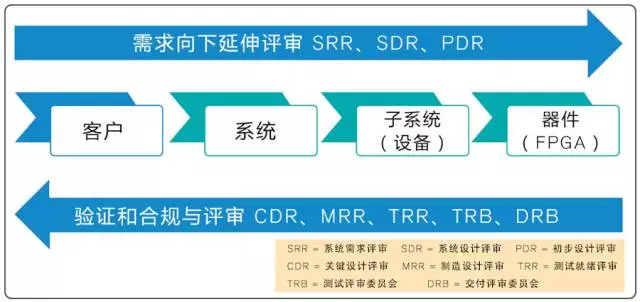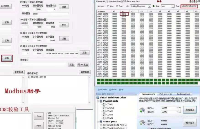Prost是一個用于序列化和反序列化協(xié)議緩沖區(qū)數(shù)據(jù)的Rust語言庫。它使用Google Protocol Buffers語言來定義協(xié)議,并生成Rust代碼以便使用該協(xié)議。 Prost具有高性能的特點(diǎn),并且支持許多protobuf功能,例如嵌套消息、默認(rèn)值、枚舉類型以及變長編碼。
Prost支持從protobuf2和protobuf3生成代碼,而且可以與其他Rust語言庫和框架無縫集成。
模塊場景和基礎(chǔ)用法
Prost可以用于許多場景,包括網(wǎng)絡(luò)通信、持久化、日志記錄等。在這里,我們將通過一個簡單的例子來介紹Prost的基礎(chǔ)用法。
首先在Cargo.toml中引入prost模塊,示例配置如下:
[dependencies]
prost = "0.11"
# Only necessary if using Protobuf well-known types:
prost-types = "0.11"
假設(shè)我們有一個動物園,里面有許多不同種類的動物。我們可以使用Prost來定義一個動物的協(xié)議,然后使用該協(xié)議來序列化和反序列化動物對象。
首先,我們需要定義動物的protobuf文件。在這里,我們定義了一個動物具有名稱、年齡和類型。動物類型是一個枚舉類型,它可以是狗、貓或鳥。
syntax = "proto3";
enum AnimalType {
DOG = 0;
CAT = 1;
BIRD = 2;
}
message Animal {
string name = 1;
uint32 age = 2;
AnimalType animal_type = 3;
}
接下來,我們需要使用Prost生成Rust代碼。我們可以使用以下命令來執(zhí)行此操作:
$ protoc --rust_out . animals.proto
這將生成一個名為animals.rs的文件,其中包含與protobuf定義相對應(yīng)的Rust代碼。
接下來,我們可以使用Prost來序列化和反序列化動物對象。以下是一個示例代碼:
use prost::{Enumeration, Message};
#[derive(Clone, PartialEq, Message)]
pub struct Animal {
#[prost(string, tag="1")]
pub name: String,
#[prost(uint32, tag="2")]
pub age: u32,
#[prost(enumeration="AnimalType", tag="3")]
pub animal_type: i32,
}
#[derive(Clone, Copy, Debug, PartialEq, Eq, Hash, Enumeration)]
pub enum AnimalType {
Dog = 0,
Cat = 1,
Bird = 2,
}
fn main() {
let mut animal = Animal::default();
animal.name = "Tom".to_string();
animal.age = 3;
animal.animal_type = AnimalType::Cat as i32;
let mut buf = Vec::new();
animal.encode(&mut buf).unwrap();
let decoded_animal = Animal::decode(&buf[..]).unwrap();
assert_eq!(animal, decoded_animal);
println!("{:?}", animal);
}
// 輸出結(jié)果:
// Animal { name: "Tom", age: 3, animal_type: Cat }
在這個示例代碼中,我們定義了一個名為Animal的結(jié)構(gòu)體,并使用prost宏將其與protobuf定義相關(guān)聯(lián)。我們還定義了一個名為AnimalType的枚舉類型,它與protobuf定義中的枚舉類型相對應(yīng)。
在main函數(shù)中,我們創(chuàng)建了一個Animal對象,并將其序列化為字節(jié)數(shù)組。然后,我們將字節(jié)數(shù)組反序列化為另一個Animal對象,并使用assert_eq宏比較這兩個對象是否相等。
高級特性
Prost提供了許多高級特性,例如自定義類型、擴(kuò)展字段、oneof等。在這里,我們將介紹其中一些特性。
自定義類型
有時,我們可能需要在protobuf定義中使用自定義類型。例如,我們可能需要使用自定義類型來表示日期或時間。在這種情況下,我們可以使用prost宏的bytes屬性來定義自定義類型。
以下是一個示例代碼:
syntax = "proto3";
message Date {
bytes value = 1 [(prost(bytes_type) = "chrono::NaiveDate")];
}
message Time {
bytes value = 1 [(prost(bytes_type) = "chrono::NaiveTime")];
}
在這個示例代碼中,我們定義了兩個消息類型:Date和Time。它們都包含一個名為value的字節(jié)數(shù)組字段,并使用prost宏的bytes_type屬性將其與chrono庫中的NaiveDate和NaiveTime類型相關(guān)聯(lián)。
自定義編解碼
Prost支持自定義編解碼,可以使用prost::Message trait來實(shí)現(xiàn)自定義編解碼。
impl Animal {
pub fn from_bytes(bytes: &[u8]) - > Result< Self, prost::DecodeError > {
Animal::decode(bytes)
}
pub fn to_bytes(&self) - > Result< Vec< u8 >, prost::EncodeError > {
let mut buf = Vec::new();
self.encode(&mut buf)?;
Ok(buf)
}
}
fn main() {
let mut animal = Animal::default();
animal.name = "Tom".to_string();
animal.age = 3;
animal.animal_type = AnimalType::Cat as i32;
let bytes = animal.to_bytes();
println!("{:?}", Animal::from_bytes(&bytes.unwrap()));
}
// 輸出結(jié)果:
// Ok(Animal { name: "Tom", age: 3, animal_type: Cat })
擴(kuò)展字段
有時,我們可能需要向protobuf消息添加額外的字段,但是又不想破壞現(xiàn)有的消息格式。在這種情況下,我們可以使用擴(kuò)展字段。
擴(kuò)展字段是在protobuf定義中定義的,但是在生成的Rust代碼中不會出現(xiàn)。它們可以用來存儲任何類型的數(shù)據(jù),并且可以與protobuf消息一起序列化和反序列化。
以下是一個示例代碼:
syntax = "proto3";
message Animal {
string name = 1;
uint32 age = 2;
AnimalType animal_type = 3;
map< string, bytes > extensions = 1000;
}
在這個示例代碼中,我們添加了一個名為extensions的字段,它是一個map類型,可以存儲任何類型的數(shù)據(jù)。此字段的標(biāo)簽為1000,這意味著它是一個擴(kuò)展字段。
在Rust代碼中,我們可以使用prost::Message trait的extensions方法來訪問擴(kuò)展字段。以下是一個示例代碼:
use prost::{Enumeration, Message};
use std::collections::HashMap;
#[derive(Clone, PartialEq, Message)]
pub struct Animal {
#[prost(string, tag="1")]
pub name: String,
#[prost(uint32, tag="2")]
pub age: u32,
#[prost(enumeration="AnimalType", tag="3")]
pub animal_type: i32,
#[prost(map="string, bytes", tag="1000")]
pub extensions: HashMap< String, Vec< u8 >>,
}
#[derive(Clone, Copy, Debug, PartialEq, Eq, Hash, Enumeration)]
pub enum AnimalType {
Dog = 0,
Cat = 1,
Bird = 2,
}
fn main() {
let mut animal = Animal::default();
animal.extensions.insert("color".to_string(), b"brown".to_vec());
let mut buf = Vec::new();
animal.encode(&mut buf).unwrap();
let decoded_animal = Animal::decode(&buf[..]).unwrap();
assert_eq!(animal.extensions, decoded_animal.extensions);
}
在這個示例代碼中,我們創(chuàng)建了一個Animal對象,并向其添加了一個名為color的擴(kuò)展字段。然后,我們將該對象序列化為字節(jié)數(shù)組,并將其反序列化為另一個Animal對象。最后,我們使用assert_eq宏比較這兩個對象的擴(kuò)展字段是否相等。
Proto Oneof
有時,我們可能需要在protobuf消息中使用oneof語法,以表示字段中的多個可能類型。在這種情況下,我們可以使用prost宏的oneof屬性來定義oneof字段。
以下是一個示例代碼:
syntax = "proto3";
message Animal {
string name = 1;
uint32 age = 2;
oneof animal_type {
Dog dog = 3;
Cat cat = 4;
Bird bird = 5;
}
}
message Dog {
string breed = 1;
}
message Cat {
bool has_tail = 1;
}
message Bird {
uint32 wingspan = 1;
}
在這個示例代碼中,我們定義了一個名為Animal的消息類型,它包含一個名為animal_type的oneof字段。oneof字段中包含三個可能的類型:Dog、Cat和Bird。每個類型都包含與其相關(guān)聯(lián)的字段。
在Rust代碼中,我們可以使用prost::Oneof trait來訪問oneof字段。以下是一個示例代碼:
use prost::{Enumeration, Message, Oneof};
use std::collections::HashMap;
use core::option::Option;
#[derive(Clone, PartialEq, Message)]
pub struct Animal {
#[prost(string, tag="1")]
pub name: String,
#[prost(uint32, tag="2")]
pub age: u32,
#[prost(oneof="AnimalType", tag="3,4,5")]
pub animal_type: Option< AnimalType >,
}
#[derive(Clone, Debug, PartialEq, Enumeration)]
pub enum AnimalType {
#[prost(message, tag = "3", name = "Dog")]
Dog(Dog),
#[prost(message, tag = "4", name = "Cat")]
Cat(Cat),
#[prost(message, tag = "5", name = "Bird")]
Bird(Bird),
}
#[derive(Clone, PartialEq, Message)]
pub struct Dog {
#[prost(string, tag="1")]
pub breed: String
}
#[derive(Clone, PartialEq, Message)]
pub struct Cat {
#[prost(bool, tag="1")]
pub has_tail: bool
}
#[derive(Clone, PartialEq, Message)]
pub struct Bird {
#[prost(uint32, tag="1")]
pub wingspan: u32
}
fn main() {
let mut animal = Animal::default();
animal.name = "Tom".to_string();
animal.age = 3;
animal.animal_type = Some(AnimalType::Cat(Cat { has_tail: true }));
let mut buf = Vec::new();
animal.encode(&mut buf).unwrap();
let decoded_animal = Animal::decode(&buf[..]).unwrap();
assert_eq!(animal, decoded_animal);
}
在這個示例代碼中,我們創(chuàng)建了一個Animal對象,并將其cat字段設(shè)置為一個包含has_tail字段的Cat對象。然后,我們將該對象序列化為字節(jié)數(shù)組,并將其反序列化為另一個Animal對象。最后,我們使用assert_eq宏比較這兩個對象是否相等。
prost最佳實(shí)踐
以下是一些使用Prost的最佳實(shí)踐經(jīng)驗(yàn):
- ? 在protobuf定義中使用簡單的數(shù)據(jù)類型。Prost支持許多protobuf功能,例如嵌套消息、默認(rèn)值、枚舉類型以及變長編碼。但是,使用這些功能可能會導(dǎo)致生成的Rust代碼變得復(fù)雜。因此,為了使代碼保持簡單和易于維護(hù),請盡可能使用簡單的數(shù)據(jù)類型。
- ? 在Rust代碼中使用結(jié)構(gòu)體。Prost生成的Rust代碼可以是一個模塊或一個trait。但是,使用結(jié)構(gòu)體可以使代碼更易于使用和維護(hù)。因此,建議在Rust代碼中使用結(jié)構(gòu)體。
- ? 使用自定義類型時,請使用標(biāo)準(zhǔn)庫或第三方庫。Prost支持許多自定義類型,包括日期、時間、UUID等。但是,使用標(biāo)準(zhǔn)庫或第三方庫可能會使代碼更加通用和可移植。因此,建議在使用自定義類型時使用標(biāo)準(zhǔn)庫或第三方庫。
- ? 在使用擴(kuò)展字段時,請注意字段標(biāo)簽。擴(kuò)展字段的標(biāo)簽必須大于1000。因此,請確保您為擴(kuò)展字段選擇一個大于1000的標(biāo)簽。
- ? 在使用
oneof語法時,請選擇一個好的字段名稱。oneof字段包含多個可能的類型,因此請為其選擇一個好的字段名稱。這將使代碼更易于理解和維護(hù)。
總結(jié)
Prost是一個高性能的Rust語言庫,可用于序列化和反序列化協(xié)議緩沖區(qū)數(shù)據(jù)。它支持許多protobuf功能,并且可以與其他Rust語言庫和框架無縫集成。在本教程中,我們介紹了Prost的基礎(chǔ)用法和一些高級特性,并提供了一些最佳實(shí)踐經(jīng)驗(yàn)。我們希望這個教程能夠幫助您更好地使用Prost。
-
編碼
+關(guān)注
關(guān)注
6文章
940瀏覽量
54814 -
代碼
+關(guān)注
關(guān)注
30文章
4779瀏覽量
68524 -
rust語言
+關(guān)注
關(guān)注
0文章
57瀏覽量
3009
發(fā)布評論請先 登錄
相關(guān)推薦
嵌入式系統(tǒng)開發(fā)實(shí)踐經(jīng)驗(yàn)分享

實(shí)踐經(jīng)驗(yàn)還是理論學(xué)習(xí)
請問有關(guān)于STM32普通IO口模擬操作SMBus通信的相關(guān)實(shí)踐經(jīng)驗(yàn)嗎?
工業(yè)吸塵吸水機(jī)谷歌優(yōu)化推廣,12年實(shí)踐經(jīng)驗(yàn)
編譯器原理及實(shí)踐
不同行業(yè)客戶如何利用物聯(lián)網(wǎng)平臺的實(shí)踐經(jīng)驗(yàn)案例分析
福田汽車對工業(yè)互聯(lián)網(wǎng)的探索及實(shí)踐經(jīng)驗(yàn)
在汽車行業(yè)多年來戰(zhàn)略與設(shè)計上的理論與實(shí)踐經(jīng)驗(yàn)
OpenHarmony Tech Day技術(shù)日 創(chuàng)新教育教學(xué)實(shí)踐經(jīng)驗(yàn)分享

Modbus協(xié)議通訊學(xué)習(xí)仿真器虛擬串口完整套裝實(shí)踐經(jīng)驗(yàn)總結(jié)

使用Koordinator支持異構(gòu)資源管理和任務(wù)調(diào)度場景的實(shí)踐經(jīng)驗(yàn)

訊維集中電源控制器:案例研究與實(shí)踐經(jīng)驗(yàn)分享





 Prost的最佳實(shí)踐經(jīng)驗(yàn)
Prost的最佳實(shí)踐經(jīng)驗(yàn)










評論